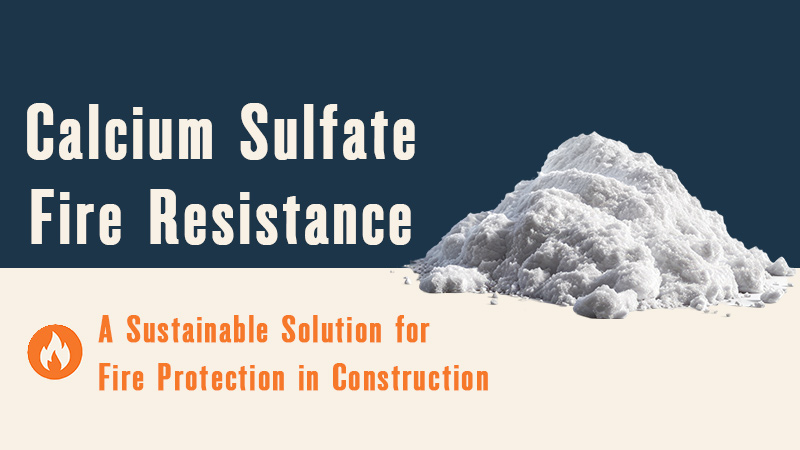
Uses of Calcium Sulfate: A Versatile Compound in Industry and Daily Life
Calcium sulfate (CaSO₄) is a remarkable chemical compound that plays a significant role in various industries and daily life. This naturally occurring mineral exists in different forms depending on its hydration level, including anhydrous calcium sulfate, hemihydrate (CaSO₄·0.5H₂O), and dihydrate (CaSO₄·2H₂O). Commonly known as gypsum in its hydrated form, calcium sulfate has been utilized for centuries, dating back to ancient civilizations that employed it in construction and decorative applications.
Physical and Chemical Properties
Calcium sulfate is a white, crystalline substance that is highly stable under normal environmental conditions. It is slightly soluble in water, with a solubility that decreases with increasing temperature—a rare characteristic for salts. This property makes calcium sulfate useful in applications where controlled solubility is critical. Chemically, calcium sulfate is inert and non-toxic, making it a safe choice for many industrial and consumer products.
Its different hydration states allow calcium sulfate to be adaptable. Anhydrous calcium sulfate, for instance, is used as a desiccant due to its ability to absorb moisture. Gypsum, the dihydrate form, is widely employed in construction materials and as a soil conditioner in agriculture.
Uses in Construction

One of the most well-known uses of calcium sulfate is in the construction industry. Gypsum is a key component of drywall, also known as plasterboard or sheetrock. This material is created by sandwiching a layer of calcium sulfate dihydrate between sheets of heavy paper. Drywall is lightweight, fire-resistant, and easy to install, making it a popular choice for building interiors.
Plaster of Paris (POP), a derivative of calcium sulfate hemihydrate, is another important construction material. POP is produced by heating gypsum to approximately 150°C, which removes most of its water content. When mixed with water, it rehydrates and hardens quickly, forming a solid structure. This property makes it ideal for creating molds, casts, and intricate decorative elements.
Industrial Uses
In industry, calcium sulfate is a versatile ingredient. It is used in the manufacturing of cement and as a setting regulator. Adding gypsum to cement prevents it from setting too quickly, ensuring better workability during construction. The compound also finds use in the production of ceramics, as it contributes to the strength and durability of ceramic products.
Calcium sulfate is a critical component in the food and pharmaceutical industries as well. It is used as a firming agent, dough conditioner, and dietary calcium supplement in food processing. In pharmaceuticals, it serves as an excipient, helping to bind tablets and improve their stability. Its inert nature ensures that it does not interfere with the active ingredients in medications.
Agricultural Applications

Calcium sulfate is an essential component in agriculture, where it is used as a soil amendment. Gypsum improves soil structure, aeration, and water infiltration, which are critical for healthy plant growth. It also provides calcium and sulfur, essential nutrients for plants. Additionally, gypsum helps mitigate soil salinity by displacing sodium ions and improving soil permeability, particularly in arid regions.
Farmers use calcium sulfate to address soil compaction, which can hinder root development and water absorption. By improving soil texture, gypsum promotes better crop yields and enhances sustainability in agriculture.
Environmental Benefits
Calcium sulfate offers environmental benefits as well. Its use in flue gas desulfurization (FGD) systems in power plants helps reduce sulfur dioxide emissions—a major contributor to acid rain. In this process, calcium sulfate is produced as a byproduct and can be recycled into gypsum for use in construction or agriculture. This recycling reduces waste and supports sustainable practices.
Furthermore, the uses of gypsum in soil remediation projects helps restore degraded lands and mitigate the impact of industrial activities. Its ability to neutralize acidic soils and improve soil structure makes it a valuable tool in environmental conservation.
Health and Safety Considerations
Calcium sulfate is generally considered safe for use in consumer products and industrial applications. However, fine particles of gypsum or Plaster of Paris can pose respiratory hazards if inhaled in large quantities over extended periods. Proper handling and protective measures, such as using masks and ensuring adequate ventilation, are recommended when working with these materials.
Challenges and Innovations
While calcium sulfate has numerous applications, its solubility limits its use in certain scenarios. Researchers are exploring ways to modify its properties to expand its functionality. Innovations in material science have led to the development of gypsum-based composites and enhanced formulations for construction and industrial applications.
Another area of research involves recycling waste gypsum from industrial processes, such as FGD systems and phosphogypsum from phosphate fertilizer production. These efforts aim to minimize environmental impact and promote circular economy practices.
Conclusion
Calcium sulfate is an indispensable compound with a wide range of applications in construction, agriculture, industry, and environmental management. Its versatility, safety, and abundance make it a valuable resource for modern society. As industries continue to innovate, calcium sulfate will likely remain a cornerstone material, contributing to sustainable development and technological progress.







